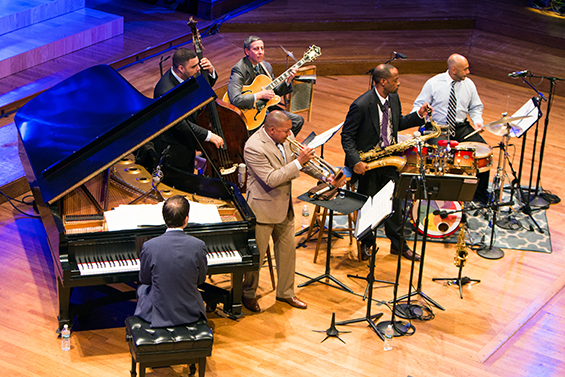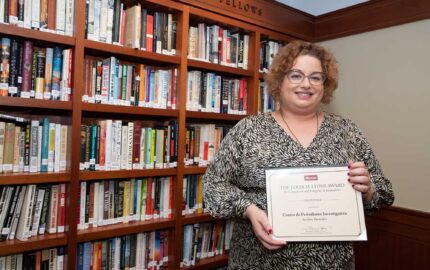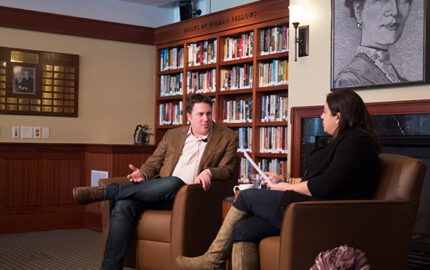Power: Accountability and Abuse
September 10 – 11, 2016

The Nieman Foundation for Journalism at Harvard is honored to have hosted the capstone marquee event for The Pulitzer Prizes’ year-long Centennial Celebration in 2016.
Pulitzer Prize-winning journalists, composers, authors, poets and playwrights convened at Harvard on September 10th and 11th to debate, discuss — and perform — the theme “Power: Abuse and Accountability.”
Harvard University President Drew Gilpin Faust opened the weekend Sept. 10 with an introduction of Pulitzer Prize winner and world-renowned jazz pioneer Wynton Marsalis. She reflected on how Marsalis uses music to advance national conversations on critical issues.
“Through the lens of music, he brought us a portrait of our nation itself: of the rhythms of our national identity, of differences and common ground, of democracy, life, liberty and the pursuit of happiness,” Faust said during her introduction of Marsalis. “But he does not let us forget that America also has – in his words – a bloodstained and painful past. Yet these terrible realities, he reminds us, have paradoxically been the source of much of our nation’s finest art and creativity.”
Faust added that the Pulitzer Prize has been “devoted to the power and importance of our national conversation as well; to lifting up creative expressions of journalism, fiction and non-fiction, drama and music. In honoring the best of America, the Pulitzer Prizes embrace the same optimism that Wynton defines as the heart of human possibility and music’s possibility.”
Marsalis reflected on the themes raised by “Blood on the Fields,” his epic oratorio of one couple’s journey from slavery to freedom — the first jazz composition to win the Pulitzer. He interspersed musical performances with his quintet to reflecting on themes including the power of jazz, blues and other musical forms to mirror America’s diversity with its amalgam of influences.
The Marsalis event at Harvard’s historic Sanders Theatre was followed on Sept. 11, 2016, by a day-long program of Pulitzer winners engaged in conversation, storytelling and performances that highlight the work of those who give voice to the powerless and hold the powerful to account.
Among them, playwright Lynn Nottage presented a scene from her Pulitzer Prize-winning play ‘Ruined’ about a brothel keeper in the Democratic Republic of Congo; author Junot Díaz read from his novel about a Dominican-American teenager coming of age in a multi-generational immigrant family; and legendary Washington Post reporter Bob Woodward engaged in a lively debate with Laura Poitras — who was part of a team that won a Pulitzer for stories revealing widespread secret surveillance by the National Security Agency — and New York Times Executive Editor Dean Baquet about the journalist’s role in holding those in power accountable.
The Nieman celebration was the final of four signature events nationwide in 2016 honoring the Pulitzers’ Centennial.
The other events focusing on Pulitzer Prize-winning work are:
- “Civil Rights, Social Equality and Democracy” at The Poynter Institute, St. Petersburg, Fla., March 31- April 1
- “War, Migration and the Quest for Peace” hosted by the Los Angels Times and USC Annenberg School for Communications and Journalism, May 19-20
- “The People, the Presidency and the Press” sponsored by The The Dallas Morning News and Texas’ three presidential libraries, June 2-3



